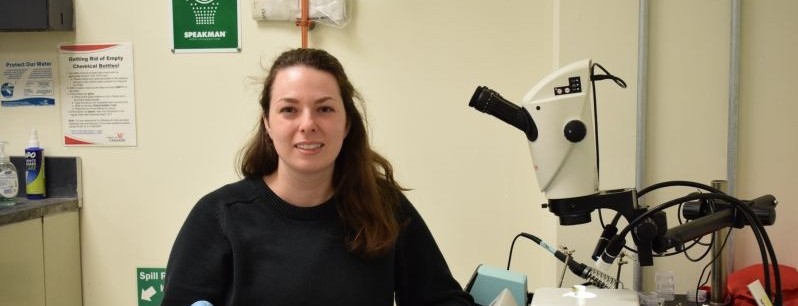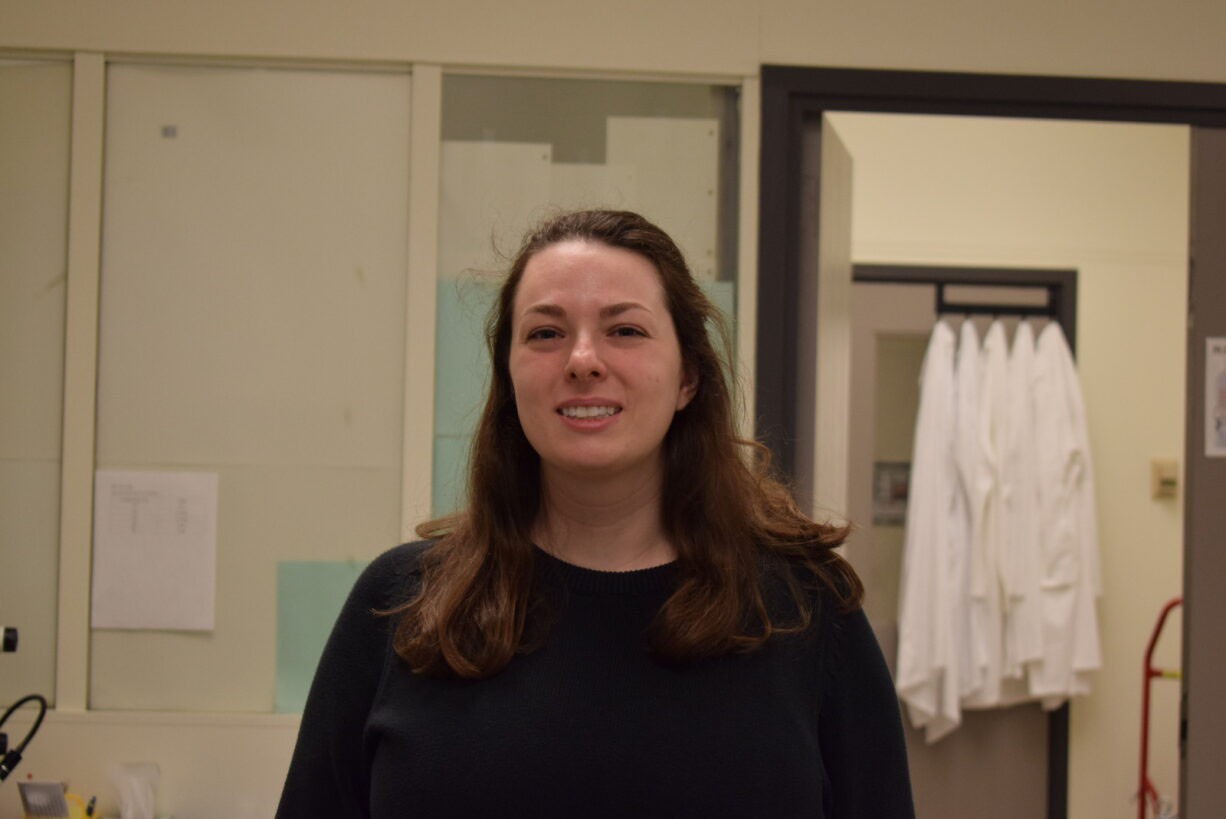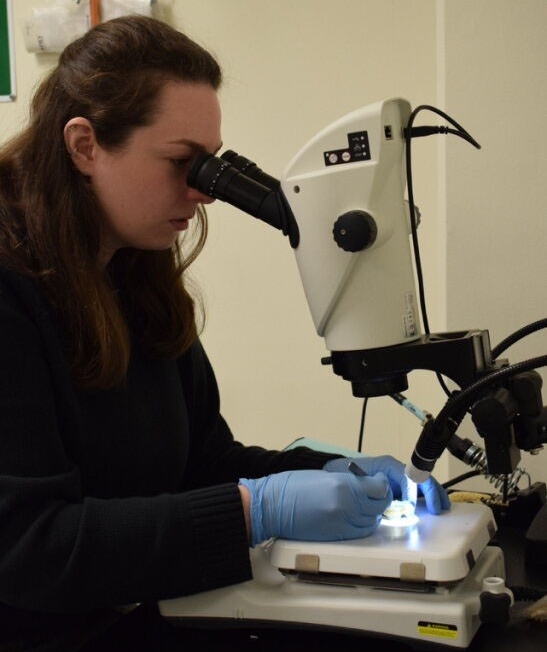
UC engineering student helped start new lab
Eleanor Scott has been studying at UC for 10 years
Ten years ago, Eleanor Scott came to the University of Cincinnati to pursue a bachelor's degree in mechanical engineering and gain real-world engineering experience through UC's cooperative education program.
In the beginning of her master's program, she began working for Assistant Professor Sarah Watzman, who was in the process of setting up a brand-new lab. After working in the lab for several months, Scott decided to remain at UC for her doctoral degree in materials science.
Her doctoral research focuses on magneto-thermoelectric characterization of Weyl semimetals. She was recently accepted into the U.S. Department of Energy's Science Graduate Student Research Program and was named Graduate Student Engineer of the Month by UC's College of Engineering and Applied Science.
Why did you choose UC?

Eleanor Scott is pursuing her PhD in materials science at the University of Cincinnati. Photo/Provided.
I started at UC for my undergraduate degree studying mechanical engineering. UC was my first choice because I wanted to stay local and my family all lives in the Cincinnati area.
CEAS's co-op program was also a big draw because I was able to get experience working in an engineering department and that experience is what motivated me to continue my schooling and pursue my Ph.D. I know I made the right choice to stay at UC because I love working in Dr. Sarah Watzman's lab, and it has opened the door to many research collaborations.
Why did you choose your field of study?
My undergraduate degree was in mechanical engineering, but all my favorite classes were focused on the materials side of things. I love studying materials science because it incorporates so many other disciplines. I get to work with chemists, engineers and physicists all on the same projects. I chose to work on thermoelectric materials specifically because my ultimate goal was to pursue research in renewable energies and other technologies which could have a positive impact on the environment.
Briefly describe your research work.

Eleanor Scott is researching the thermoelectric transport of a specific class of materials called topological materials. Photo/Provided
Thermoelectric materials are materials that can convert heat into electricity. Our current energy sources produce large amounts of unused energy in the form of heat and so the aim of this field is to convert this waste heat into emission-free electric energy, thus lowering the overall environmental impact of these energy sources.
My research focuses on the thermoelectric transport of a specific class of materials called topological materials, which have shown promise.
The thermoelectric effects in these materials are enhanced using a magnetic field and so my research involves characterizing these thermomagnetic effects. My work explores the various transport properties found in these unique materials, laying the groundwork for the creation of a new and enhanced thermoelectric device.
What are some of the most impactful experiences during your time at UC?
Working in Dr. Watzman's lab has given me so many opportunities to share my work at scientific conferences and collaborate with other labs outside of UC.
The biggest impact being my opportunity to be a visiting researcher at the National Renewable Energy Lab in Golden, Colo., through the U.S. Department of Energy's Science Graduate Student Research Award. I wouldn't have been able to do this without the help of Watzman and her collaborations.
What are a few of your accomplishments of which you are most proud?
My Graduate Student Research Award from the Department of Energy is my biggest accomplishment. It was the first time in my research career where I got to create my own project and write my own research proposal.
When do you expect to graduate? What are your plans after earning your degree?
I'm hoping to graduate by the end of the Spring 2024 semester. After graduation, I hope to continue research by working in a national lab.
Featured image at top: Eleanor Scott poses next to a microscope in the lab. Photo/Provided
Related Stories
UC joins Ohio to improve worker safety
September 9, 2024
Ohio is taking steps to ensure the safety of workers in proximity to these electronic tools. The Bureau of Workers’ Compensation awarded $9.4 million for workforce safety innovation projects, including two led by UC’s College of Engineering and Applied Science.
What computers tell us about synthetic biology
March 3, 2022
Creating synthetic life could be easily within our grasp soon based on a comparison with the evolution of computer chips. Computer programming and gene synthesis appear to share little in common. But according to University of Cincinnati professor Andrew Steckl, an Ohio Eminent Scholar, leaps forward in technology in the former make him optimistic that wide scale gene manufacture is achievable.
